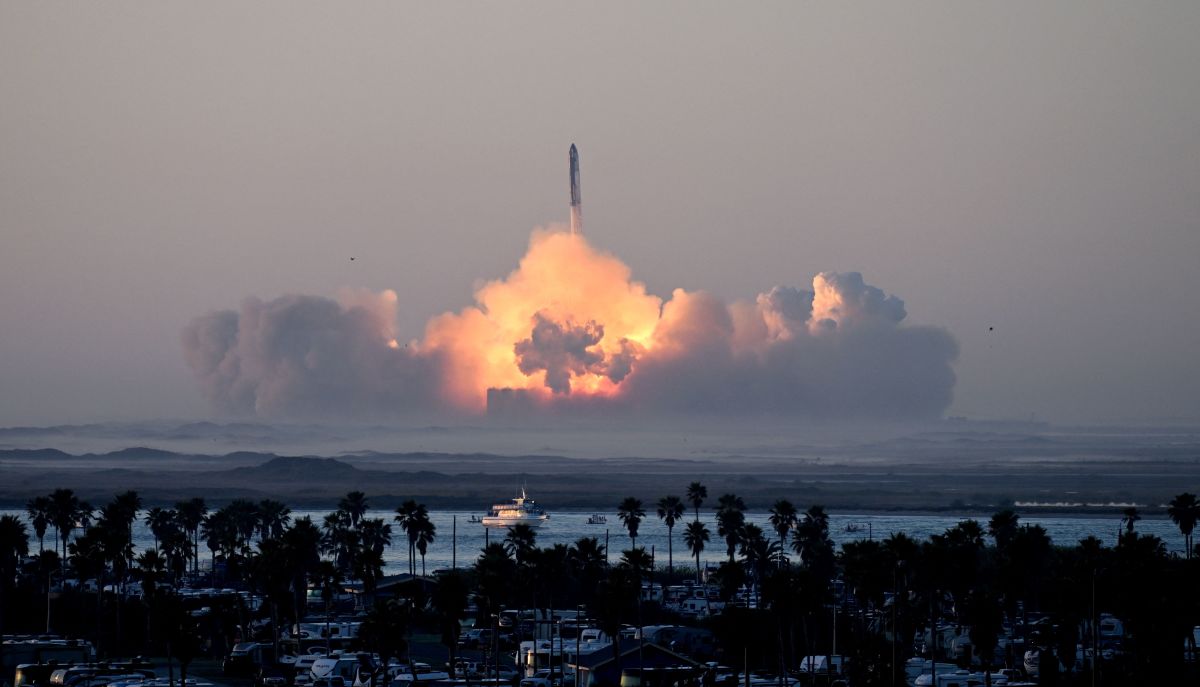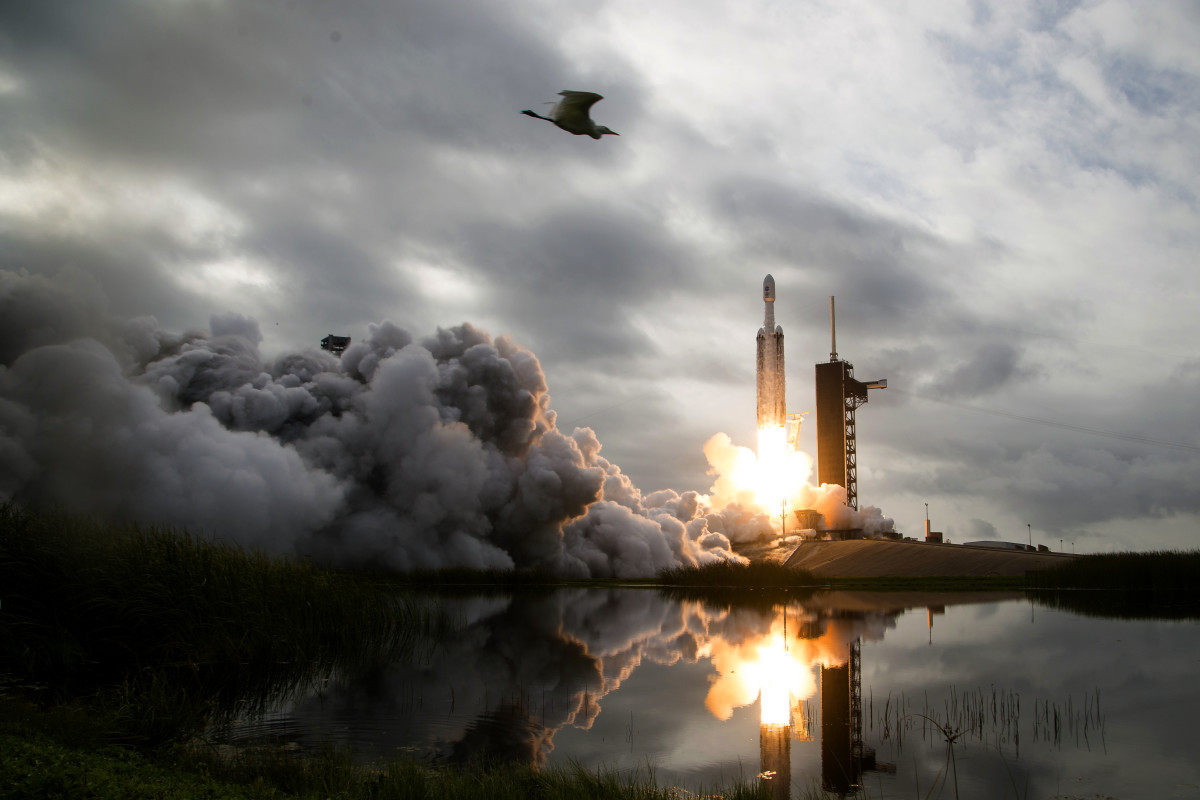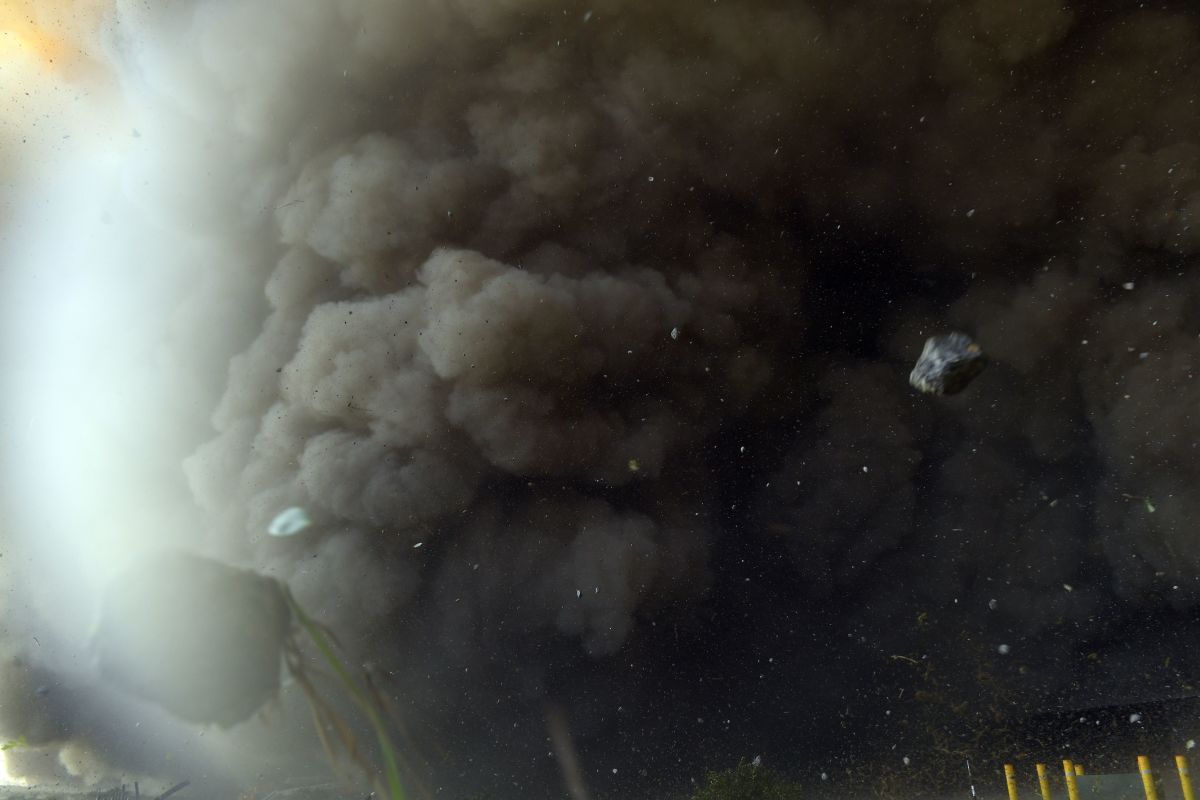
During his interview at the annual DealBook summit, billionaire and Tesla (TSLA) -) CEO Elon Musk proclaimed that he has done more to help the environment than any other person alive, because of the work he has done to usher in the era of electric vehicles.
“Tesla has done more to help the environment than all other companies combined," he said. "It would be fair to say, therefore, as the leader of the company, I’ve done more for the environment than any single human on Earth.”
Setting aside the environmental costs of both car and battery production, the costs of charging electric vehicles on dirty grids and any of Musk's personal activities — including private jet flights — Musk owns more companies than just Tesla. And even if Musk and Tesla were perfectly sustainable, some of his other companies, by their nature, are less so.
Such as SpaceX.
The company in recent years has cemented itself as the leading private space corporation. And Musk has lately been increasing SpaceX launches both to grow his Starlink satellite constellation and to maintain that superiority.
SpaceX launched 26 missions in 2020, 31 in 2021 and 61 in 2022.
With about a week left in the year, SpaceX is on track to complete slightly less than 100 launches — as of Dec. 19, it had conducted 92 successful flights, without counting the two failed Starship tests.
Musk said that he is targeting 12 launches per month, or 144 flights for the year, for 2024.
And as SpaceX has ramped up its launch frequency, the world has followed suit. There have been at least 200 launches worldwide as of Dec. 18, according to astronomer Jonathan McDowell, more than the 174 launches last year and the 132 the year before.
And though it is lagging behind the competition, Jeff Bezos' Blue Origin is eager to catch up. The company on Dec. 19 successfully completed its first launch in more than a year, and has plans to send a new rocket — New Glenn — into space next year.
This increase in the frequency of worldwide rocket launches has some scientists concerned about the resulting impact on the environment.
Related: Elon Musk has even bigger plans for SpaceX next year
The environmental impact of rocket launches
Rockets don't pose the same kinds of environmental concerns as other forms of transportation, such as cars or airplanes. The aviation industry, according to the International Civil Aviation Organization (ICAO), recorded 24.2 million flights in 2021.
Aviation in 2022 accounted for around 2% of global energy-related carbon emissions, according to the International Energy Agency.
And rocket launches make up only a slim fraction of airplane flights.
But the issue with rockets isn't carbon emissions, Dr. Eloise Marais, the head of University College London's Atmospheric Composition and Air Quality research group, told TheStreet.

It is instead the production — and placement — of soot particles.
While other industries, such as shipping or coal, produce more soot — known also as black carbon — than the rocket industry, the soot produced by those industries doesn't linger for very long in the air. Rain, Marais said, washes the soot from the skies within a few weeks.
But rockets inject soot into the highest layers of the atmosphere, where there is no weather to clean it out. The only way to remove soot particles from the upper layers of the atmosphere is through gravity, though Marais said that it takes more than two years for these particles to come back to the ground.
"The implication is that we don't have to have as many rocket launches occurring as we have, say, long haul flights or vehicles on the road to have an equivalent impact," she said. "So small growth in the number of rockets has a big effect."
The issue with having soot particles in those upper layers of the atmosphere, Marais said, is that they're very good at absorbing heat from the sun, something that increases the warming of those upper layers.
"They're changing the energy balance of the earth," she said.
The impact of that, Marais said, is not yet fully understood.
Rockets also release a mix of chemicals into the stratosphere that can further deplete the ozone layer, which is currently trying to repair itself.
Related: SpaceX slams report implicating it in a potential threat to 'people on Earth'
No fuel is good fuel
When Blue Origin launched its New Shepard rocket Dec. 19, the company said in a statement that the only byproduct of its fuel — composed of liquid oxygen and hydrogen — is water vapor.
Releasing water vapor into the upper layers of the atmosphere, while not as problematic as other pollutants, "is still going to react and deplete ozone," Marais said.

"It's not doing nothing once it's released into these higher layers in the atmosphere and we don't fully understand what effect this water vapor has on those upper layers in the atmosphere," she said.
Even putting water vapor aside, rockets burn fuel at a very high temperature. That process of combustion converts the nitrogen in the atmosphere into reactive nitrogen compounds — nitrogen oxides — which are ozone-depleting compounds, according to Marais.
Related: SpaceX Chief Elon Musk explains what he needs to do to colonize Mars
The cost-benefit analysts
Despite the known and unknown impacts of more rocket launches, there are some clear environmental and scientific benefits, the most significant of which is the ability for scientists to make key observations about Earth using satellites in space.
Researchers, Marais said, can use satellites to study changes in climate data and greenhouse gases in an effort to reduce the quantity of these gasses in the atmosphere.
But "those kinds of satellites account for a very small proportion of the rockets that are being launched," she said.
The bulk of SpaceX's launches this year were dedicated to expanding the company's Starlink satellite constellation, which has now grown to 5,000 satellites. Musk foresees a future constellation consisting of more than 40,000 satellites.
The growing quantity of material in orbit around the planet additionally represents a pollution risk as that material re-enters the atmosphere and burns up.
The answer, then, is a simple one: slightly more abstinent behavior when it comes to rocket ships.
"Until we have a viable alternative to clean ways of launching things into space, we should be making serious decisions about what are the most necessary launches that should be taking place," Marais said.
Such a move seems unlikely to occur.
Neither SpaceX nor Blue Origin responded to requests for comment.
Contact Ian with tips via email, ian.krietzberg@thearenagroup.net, or Signal 732-804-1223.
Related: Watch a billionaire other than Elon Musk get a rocket into space
Get exclusive access to portfolio managers’ stock picks and proven investing strategies with Real Money Pro. Get started now.







